Understanding vehicle air conditioning systems is essential, and one standout component is the Denso 447220-4771 AC compressor. Known for its reliability and efficiency, this compressor plays a vital role in keeping your car’s air conditioning running smoothly. Whether you’re a professional mechanic or just someone who enjoys working on cars, gaining insight into how this compressor functions can help you avoid costly repairs and headaches. In this article, we’ll delve into the operation of the Denso 447220-4771, highlight its advantages, and provide tips for proper installation and maintenance, ensuring that your car’s AC system remains in top condition for the long haul.
Comprehensive Overview
The Denso 447220-4771 AC compressor is a widely used component across different vehicle brands and models, appreciated for its long-lasting performance and high efficiency. Its reputation for reliability makes it a top choice among automotive professionals and car enthusiasts alike. But what sets this compressor apart from others on the market? Let’s explore what makes it such a standout option for maintaining your vehicle’s air conditioning system.
Notable Features
Energy Efficiency: The Denso 447220-4771 is engineered to deliver powerful cooling while reducing energy use, ensuring optimal performance without draining excess power.
Built to Last: Designed for long-term use, this compressor is crafted to handle the demands of daily driving and extreme conditions, offering excellent durability.
Low-Noise Operation: Experience a quiet and comfortable ride, as this compressor operates smoothly and quietly, eliminating the distractions of a loud air conditioning system.
Why Choose the Denso 447220-4771?
Exceptional Reliability: When it comes to automotive parts, reliability is crucial. The Denso 447220-4771 is highly regarded for its consistent performance, making it a trusted choice for anyone in need of a dependable AC compressor. Think of it as a part you can always count on, ensuring your air conditioning system operates smoothly.
Hassle-Free Installation: Worried about the installation process? There’s no need! The Denso 447220-4771 is designed for ease of installation, allowing you to fit it with minimal effort if you have some basic mechanical knowledge. And if you prefer professional help, most mechanics are very familiar with this widely used model.
Installation and Maintenance Guidelines
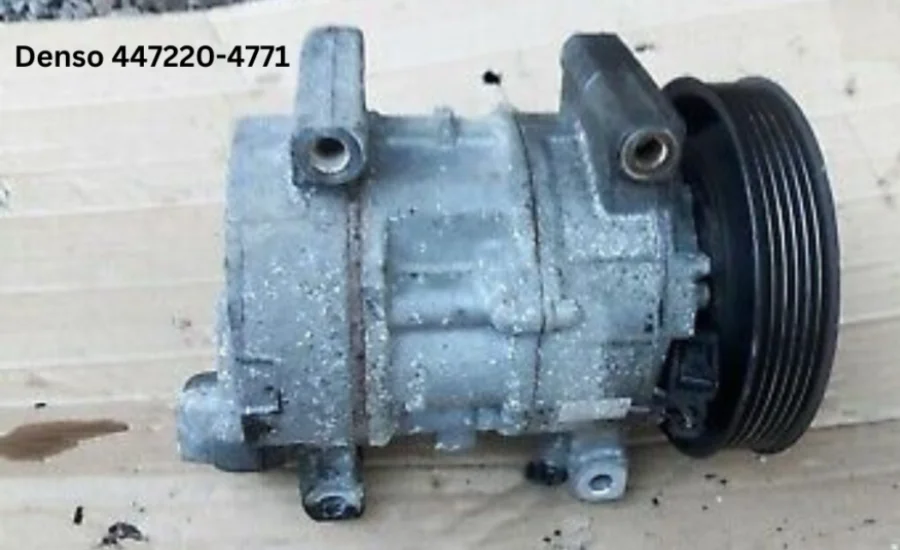
To ensure your Denso 447220-4771 AC compressor performs at its best and has a long service life, follow these essential installation and maintenance guidelines:
Installation: Adhere closely to the manufacturer’s installation instructions. Confirm that all connections are properly secured and perform a leak check before operating the system.
Ongoing Maintenance: Arrange for regular inspections of the compressor and its associated components. Replace or clean the air filter as needed and keep an eye on refrigerant levels to maintain peak performance.
Troubleshooting: Should issues arise, consult the troubleshooting section of the manual for guidance. Many common problems can be resolved with straightforward solutions, such as adjusting connections or topping up the refrigerant.
By selecting the Denso 447220-4771 AC compressor, you’re opting for a high-performing, reliable component. With regular maintenance and proper care, this compressor will help keep your vehicle’s air conditioning system effective and comfortable for many years.
Getting Ready for the Denso 447220-4771
Before you commence with the installation, take the time to gather all necessary tools and have your new Denso 447220-4771 compressor readily available. It’s essential to ensure that you disconnect the car battery to safeguard against any potential electrical hazards. This step not only prevents accidental shorts or shocks but also ensures a smoother and safer installation process. Proper preparation is key to a successful installation, so double-check that you have everything you need and that the work area is clean and organized. By taking these precautions, you’ll set yourself up for a more efficient and trouble-free installation experience.
Removing the Old Compressor
To begin the replacement process, carefully remove the old compressor from its mounting position. Take meticulous notes or photographs of how all connections and components are arranged. Observing the exact configuration of the hoses, electrical connections, and mounting points will greatly facilitate the installation of the new compressor. Ensure you handle each part with care to avoid damage, and keep all components organized. By thoroughly documenting the setup of the old compressor, you’ll streamline the process of installing the new unit and reduce the risk of complications, ensuring a smoother transition and optimal performance of your air conditioning system.
Installing the New Compressor
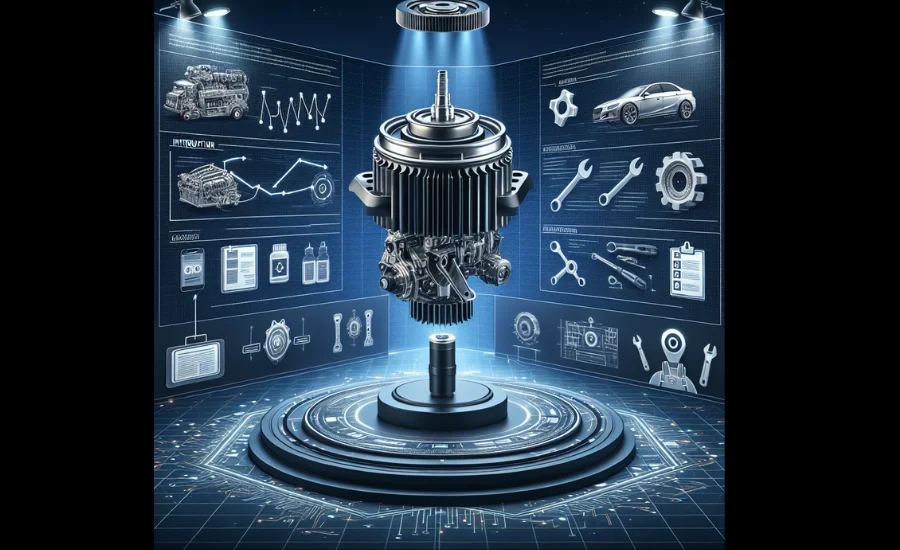
Carefully position the new Denso 447220-4771 compressor into its designated mounting location. Secure the compressor using the bolts provided, ensuring a firm and stable attachment. Next, reconnect all hoses and electrical connectors with precision, mirroring the configuration from the old compressor. It’s crucial to verify that each connection is aligned correctly and fully engaged to prevent leaks or electrical issues. Take extra care to route the hoses and wiring as they were originally, avoiding any kinks or damage. Thoroughly check each connection for a secure fit and confirm that all components are properly integrated. This meticulous approach will help ensure that your new compressor operates smoothly and efficiently, maintaining the optimal performance of your vehicle’s air conditioning system.
Recharging the Air Conditioning System
Once the new compressor is securely installed, the next step is to recharge the air conditioning system with the appropriate refrigerant. Begin by consulting your vehicle’s service manual to determine the correct type and amount of refrigerant required. Carefully add the refrigerant, ensuring that you adhere to the precise specifications provided by the manufacturer. This step is critical for restoring the system’s cooling efficiency and ensuring that the new compressor operates effectively. Properly recharging the AC system not only helps in achieving optimal performance but also extends the lifespan of the compressor and other components. Take your time to perform this task accurately to guarantee a well-functioning air conditioning system.
System Testing
Once the vehicle is started, activate the air conditioning system to thoroughly test its functionality. Observe whether the AC is providing consistent and effective cooling, and monitor for any unusual noises that could signal potential problems. It’s important to listen carefully for any irregular sounds, such as hissing or grinding, which may indicate issues with the compressor or other components. Additionally, check the airflow from the vents to ensure it is strong and steady. This comprehensive test will help confirm that the new compressor is functioning correctly and that the entire system is operating smoothly and efficiently.
Utilize the Correct Tools
Using the appropriate tools is essential for a successful installation. Make sure you have a set of wrenches, screwdrivers, and a refrigerant recharge kit on hand. These tools are necessary to ensure a smooth and efficient installation process. Proper equipment not only makes the job easier but also helps to prevent damage to components and ensures that the installation is completed accurately.
Inspect for Leaks
Once the installation is complete, it is crucial to check for any refrigerant leaks. To do this, apply a soapy water solution to all connections and joints. If there are any leaks, the solution will form bubbles at the leak points, making them easier to identify. This step ensures that your system is sealed properly and functioning as intended, preventing potential issues with performance and efficiency.
Refer to the Manual
Always consult your vehicle’s manual for detailed instructions and torque specifications specific to your make and model. Adhering to these guidelines will help ensure a correct and safe installation.
By following these steps and recommendations, you can confidently install the Denso 447220-4771 AC compressor, helping to maintain the efficiency and reliability of your vehicle’s air conditioning system.
Common Issues
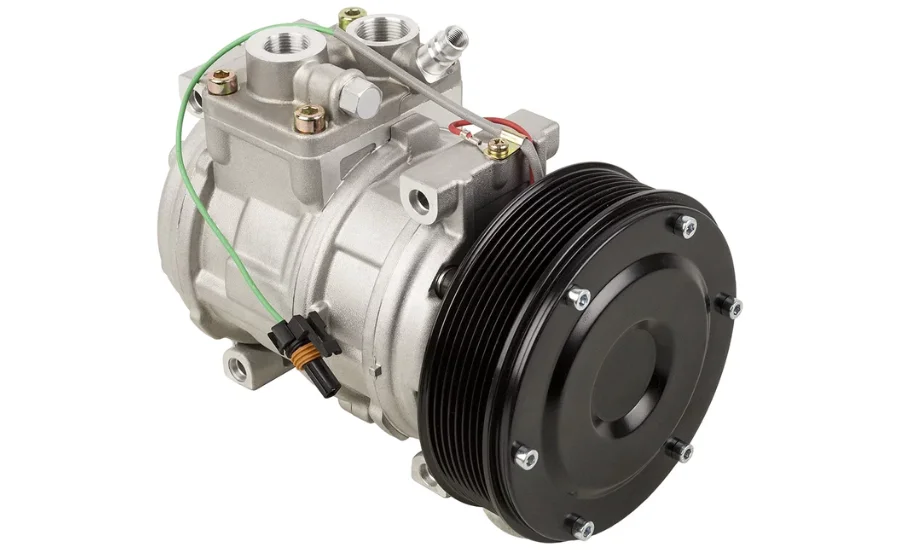
Even premium components such as the Denso 447220-4771 can occasionally experience issues. Understanding potential problems can help you address them more effectively. Here are several common issues that might arise with this model:
- Inconsistent Cooling: Sometimes, the air conditioning system may not provide consistent cooling, which could be due to various factors such as improper refrigerant levels or issues with the compressor itself.
- Unusual Noises: If you hear unusual sounds, such as grinding or squealing, it might indicate problems with the compressor or associated components, potentially requiring further investigation.
- Leakage Issues: Even high-quality compressors can develop leaks. Regular inspection is crucial to identify and address any refrigerant leaks promptly.
- Electrical Problems: Issues with electrical connections or the compressor’s electrical components can affect performance. Ensuring all connections are secure and properly functioning can help mitigate these problems.
By being aware of these potential issues, you can take proactive steps to maintain the efficiency and reliability of your Denso 447220-4771 AC compressor.
Refrigerant Leaks
Over time, the seals within your air conditioning system can wear out and become less effective, which may result in refrigerant leaks. These leaks can severely impact the efficiency of your AC system, as the loss of refrigerant undermines the system’s ability to provide adequate cooling.
When refrigerant levels drop due to leaks, the system has to work harder to achieve the desired temperature, leading to increased strain on the compressor and reduced overall performance. Additionally, persistent refrigerant loss can cause further damage to components and increase the risk of more serious repairs.
To prevent such issues, it’s crucial to conduct regular inspections and maintenance of your AC system. Early detection of leaks through visual checks or using leak detection tools can help address these problems before they escalate, ensuring your system remains efficient and reliable.
Uncommon Noises
Unusual noises coming from your air conditioning system can be a red flag for potential issues with the compressor or its related components. These noises may include grinding, rattling, or squealing, and they often indicate underlying problems. Internal wear and tear within the compressor, such as deteriorating bearings or damaged components, can lead to these disruptive sounds. External factors, such as misalignment or debris in the system, can also contribute to abnormal noises.
Addressing these issues promptly is crucial, as continued operation under such conditions can exacerbate the problem, leading to more significant damage and costly repairs. Regular maintenance and timely intervention can help identify and resolve these issues early, ensuring that your AC system remains in optimal condition and operates smoothly. If you encounter persistent unusual noises, it’s advisable to have the system inspected by a qualified technician to diagnose and address the root cause effectively.
Reduced Cooling Efficiency
If your air conditioning system is not providing adequate cooling, it could be due to a problem with the compressor or an issue with the refrigerant levels. Reduced cooling efficiency can result from several factors, including insufficient refrigerant, a malfunctioning compressor, or issues with other components in the cooling system. Regular maintenance and prompt troubleshooting are essential to identify the root cause and restore the system’s optimal performance.
Fixing Refrigerant Leaks
If you suspect a refrigerant leak, start by carefully examining the seals and hoses for any signs of damage or wear. Replace any components that appear to be degraded or faulty. After addressing any issues with the parts, recharge the system with the appropriate type and amount of refrigerant as specified by your vehicle’s manufacturer. Ensuring that the system is properly sealed and correctly filled with refrigerant will help restore its efficiency and performance. Regular inspections and prompt repairs are crucial for maintaining the integrity of your air conditioning system.
Resolving Noise Problems
Noisy operation in your air conditioning system can often be traced to loose components or general wear and tear. To address these issues, start by tightening any loose bolts or connections that may be contributing to the noise. If certain parts show signs of wear or damage, consider replacing them to prevent further issues. Regular maintenance and timely repairs are essential to minimize noise and ensure that your system operates smoothly and efficiently.
Improving Cooling Performance
To enhance cooling performance, ensure that the refrigerant levels are accurate and that the compressor is operating correctly. Regular maintenance, including timely refrigerant recharges and system check-ups, is crucial for maintaining peak cooling efficiency.
By addressing common issues effectively and performing routine maintenance, you can keep your Denso 447220-4771 AC compressor in excellent condition. This will help ensure that your vehicle’s air conditioning system remains both reliable and efficient, providing consistent comfort throughout its service life.
Improved Comfort and Energy Efficiency
The Denso 447220-4771 AC compressor provides dependable and consistent cooling, enhancing the comfort of long journeys. Its efficient performance not only keeps you cool but also helps improve fuel efficiency, leading to cost savings over time. By reducing the strain on the engine, this compressor contributes to overall vehicle efficiency, making it a valuable investment for both comfort and economical driving.
Environmental Benefits
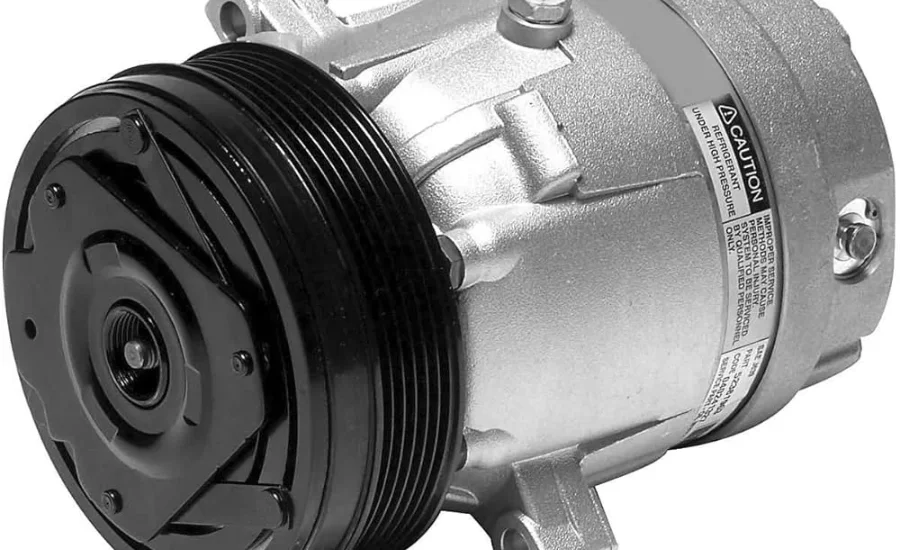
The Denso 447220-4771 AC compressor delivers efficient cooling, which reduces the load on your vehicle’s engine. This decreased strain results in lower emissions, making it a more environmentally friendly option. By improving engine efficiency and reducing your vehicle’s carbon footprint, this compressor supports a greener and more sustainable driving experience.
Demonstrated Reliability
Denso has established a strong reputation for producing high-quality automotive components, and the 447220-4771 compressor exemplifies this commitment. Renowned for its reliability, this compressor delivers consistent performance and durability, ensuring that it operates effectively over many miles. Its proven track record underscores Denso’s dedication to excellence in automotive engineering.
Outstanding Customer Support
If you have any questions or need assistance, Denso’s customer support team is readily available to provide help. Their exceptional service ensures you receive the support you need promptly and effectively.
By selecting the Denso 447220-4771 AC compressor, you benefit from enhanced comfort, energy efficiency, and environmental advantages. Additionally, you gain the reassurance of reliable performance backed by outstanding customer service. This comprehensive support helps ensure a satisfying and trouble-free experience with your air conditioning system.
Also Read: Bossb1tch0680
Final Words
The Denso 447220-4771 AC compressor stands out as a premier choice for maintaining your vehicle’s air conditioning system. Known for its exceptional reliability and efficiency, this compressor ensures powerful cooling while minimizing energy consumption. Its robust construction is designed to handle both everyday driving and extreme conditions, making it a durable option for long-term use. With its low-noise operation, the Denso 447220-4771 enhances driving comfort by delivering a quiet, smooth experience. For optimal performance, adhere to proper installation and regular maintenance practices. Address potential issues promptly to avoid complications. By choosing the Denso 447220-4771, you invest in a high-performing, environmentally friendly component that contributes to better vehicle efficiency and overall comfort.
For more valuable content and expert advice, visit Discover Thrill.
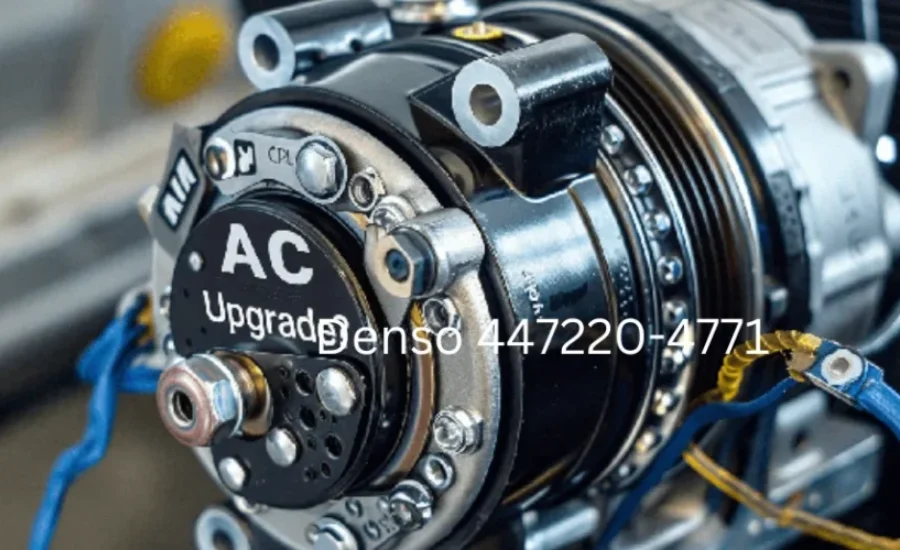








Leave a Reply
View Comments